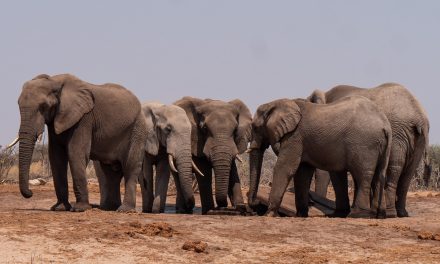So, you’re planning an epic adventure to Africa, embarking on a thrilling safari to witness the wonders of the wild. But wait, why not take your experience a step further by journaling your thoughts and experiences? Africa Safari Journaling allows you to capture every awe-inspiring moment, every heart-racing encounter with wildlife, and every thought that crosses your mind throughout your journey. Not only does it serve as a personal keepsake, but it also allows you to reflect on the incredible moments and emotions that Africa has to offer. So grab a pen, unleash your inner writer, and let’s embark on a journey of a lifetime through the art of journaling.
Benefits of Journaling on an Africa Safari
Enhances self-reflection
Journaling on an Africa safari provides an opportunity for self-reflection. Being surrounded by the beauty of nature and experiencing new cultures can lead to profound insights about oneself. By writing down your thoughts, feelings, and observations, you can gain a deeper understanding of your own values, beliefs, and desires. Journaling allows you to take a step back and analyze your experiences, helping you grow and develop as an individual.
Preserves memories
One of the most obvious benefits of journaling on an Africa safari is the ability to preserve memories. Life is filled with extraordinary moments, and it’s easy to forget the details as time goes by. By documenting your experiences in a journal, you can capture the sights, sounds, and emotions of each day. Whether it’s spotting a herd of elephants in the distance or witnessing a stunning sunset over the savannah, writing about these moments helps make them last forever.
Provides a creative outlet
Journaling on an Africa safari also serves as a creative outlet. It allows you to express yourself in a unique and personal way. Through words, drawings, or even collage, you can bring your experiences to life on the pages of your journal. The act of creating something tangible from your thoughts and emotions can be incredibly fulfilling. It provides an opportunity to tap into your imagination and explore your creativity on a whole new level.
Promotes mindfulness
Lastly, journaling on an Africa safari encourages mindfulness. In the fast-paced world we live in, it can be challenging to slow down and fully appreciate the present moment. By taking the time to write in your journal, you are grounding yourself in the here and now. You become more aware of your surroundings, sensations, and thoughts, allowing you to fully immerse yourself in the safari experience. Journaling can help you cultivate gratitude and presence, leading to a more mindful and fulfilling journey.
Choosing the Perfect Journal for Your Safari
Consider size and weight
When selecting a journal for your Africa safari, it’s important to consider its size and weight. You’ll want a journal that is compact and lightweight, so it doesn’t take up too much space or add unnecessary weight to your luggage. Opt for a size that is convenient to carry around and fits comfortably in your bag or pocket. This way, you can easily bring it with you on game drives, hikes, and any other safari activities.
Opt for durable and waterproof material
The African wilderness can be unpredictable, with sudden rain showers or unexpected encounters with wildlife. To ensure your journal withstands any challenges, choose one made from durable and waterproof material. This will protect your precious memories and thoughts from getting damaged or ruined. Look for journals with robust covers and waterproof pages that can withstand the elements.
Select a journal with blank or lined pages
The type of pages in your journal is a personal preference, but it’s worth considering whether you’d prefer blank or lined pages. Blank pages provide complete creative freedom, allowing you to write, sketch, or stick in photos wherever you like. On the other hand, lined pages provide structure and guidance, ensuring your writing remains neat and organized. Think about how you plan to use your journal and choose accordingly.
Choose a journal with a secure closure
While on safari, it’s common to be constantly on the move. From bouncing around in a vehicle to trekking through the wilderness, your journal will experience its fair share of jostling and movement. To prevent any pages from getting lost or damaged, choose a journal with a secure closure. Whether it’s an elastic band, magnetic clasp, or zipper, a reliable closure will keep your journal protected and its contents intact.
Essential Supplies for Safari Journaling
Pens and pencils
Pens and pencils are essential supplies for safari journaling. Make sure to pack a selection of different colors and styles to add variety to your entries. Consider bringing waterproof pens and pencils to ensure your writing doesn’t smudge if it comes into contact with water. Additionally, pack extras in case of misplacement or breakage.
Highlighters or colored pencils
To add a splash of color to your journal, include highlighters or colored pencils. These can be used to emphasize important details, create visual interest, or simply add a touch of vibrancy to your entries. Whether it’s highlighting a memorable experience or shading a sketch, these tools can bring your safari journal to life.
Sticky notes or tabs
Sticky notes or tabs are handy for marking pages, flagging important entries, or leaving reminders for yourself. They provide a quick and easy way to navigate your journal and find specific moments or reflections. These small adhesive tabs take up minimal space and can make a big difference in keeping your journal organized and accessible.
Travel-friendly adhesive
If you plan on adding photographs, ticket stubs, or other mementos to your journal, be sure to pack travel-friendly adhesive. Glue sticks or double-sided tape are great options as they are easy to use, compact to carry, and won’t create a mess in your luggage. This way, you can incorporate physical elements into your journal and enhance the storytelling of your safari adventure.
Daily Journaling Prompts for Your Safari Adventure
Capture wildlife encounters
One of the highlights of an Africa safari is undoubtedly the chance to see magnificent wildlife up close. Make it a habit to journal about your wildlife encounters. Describe the animals you’ve encountered, their behavior, and any memorable moments you experienced. By documenting these encounters, you can relive the excitement and share your awe with others.
Describe the landscapes and scenery
Africa is known for its stunning landscapes, from vast savannahs to lush rainforests. Take the time to write about the landscapes and scenery you encounter on your safari. Use vivid descriptions to paint a picture for readers and evoke the sense of awe and wonder you felt in the moment. By capturing the beauty of your surroundings in words, you can transport yourself back to those breathtaking scenes.
Reflect on cultural experiences
In addition to its incredible wildlife and landscapes, Africa is rich in diverse cultures and traditions. Take the opportunity to journal about your cultural experiences. Write about the people you meet, the local customs you observe, and the interactions that leave a lasting impression. Reflect on the similarities and differences between these cultures and your own, and consider how these experiences have broadened your horizons.
Write about personal growth and reflections
Finally, use your journal as a space to reflect on your personal growth and reflections throughout the safari. Write about any challenges you faced, breakthrough moments, or lessons learned. Consider how the safari experience has impacted you and what changes you may want to make in your life moving forward. By journaling about your personal growth, you ensure that your safari journey extends beyond the physical adventure.
Techniques for Effective Journaling on Safari
Practice consistency and make time for journaling
To make the most out of your safari journaling experience, it’s important to practice consistency and make time for journaling. Set aside a specific time each day to reflect on your experiences and write in your journal. This could be during downtime at the camp or lodge, before bed, or even during breaks while out on game drives. By making journaling a regular part of your routine, you’ll ensure that you don’t miss out on capturing any important moments or thoughts.
Use sensory descriptions to bring experiences to life
When journaling on safari, aim to use sensory descriptions to bring your experiences to life on the page. Describe the sounds, smells, tastes, and textures you encounter in the African wilderness. Use vivid adjectives and metaphors to evoke the different sensations you experience. By engaging the senses through your writing, you’ll transport both yourself and your readers back to those memorable moments.
Express emotions and feelings in your entries
Don’t be afraid to express your emotions and feelings in your journal entries. Journaling is a personal and intimate practice, and expressing your emotions can be cathartic and meaningful. Whether it’s awe, joy, fear, or gratitude, try to convey the emotions you felt during your safari journey. By embracing vulnerability in your writing, you’ll create a deeper connection with your experiences and readers.
Include sketches or doodles
Incorporating sketches or doodles into your journal is another effective technique for capturing the essence of your safari adventure. Even if you’re not a skilled artist, a simple sketch or doodle can add a visual element that complements your writing. Use your journal as a creative space to experiment with drawing wildlife, landscapes, or cultural symbols you encountered. This visual representation can serve as a powerful reminder of your safari memories.
Creative Ways to Document Safari Memories
Create a collage with mementos
Instead of simply writing in your journal, consider creating a collage with mementos from your safari. Collect ticket stubs, plant leaves, brochures, or anything else that holds sentimental value and creatively arrange them on the pages of your journal. This collage will serve as a tangible reminder of your safari adventure and provide a unique visual representation of your experiences.
Use photographs or polaroids
Photographs are a classic way to document memories, and a safari offers countless opportunities for breathtaking shots. Bring along a camera or use your smartphone to capture the beauty of the wildlife, landscapes, and people you encounter. Print these photographs or use a polaroid camera to instantly capture and stick them into your journal. Each photo will help transport you back to those special moments.
Design personalized maps or itineraries
For a unique and informative addition to your journal, consider designing personalized maps or itineraries. Sketch out the routes you took, mark the specific locations you visited, and include any noteworthy landmarks or attractions. This visual representation adds context to your journal entries and helps you remember the logistics of your safari adventure.
Incorporate pressed flowers or leaves
If you’re a nature enthusiast, consider incorporating pressed flowers or leaves into your journal. During your safari, collect small plant specimens that catch your eye and carefully press them in a book. Once dry, you can attach these delicate treasures to the pages of your journal. This natural touch will not only enhance the visual appeal of your journal but also serve as a beautiful reminder of the flora you encountered.
Sharing and Preserving Your Safari Journal
Read your journal aloud to fellow travelers
One way to share and preserve your safari journal is to read it aloud to fellow travelers. Gather around a campfire, in a common area, or during meal times and take turns sharing your journal entries. This creates an interactive and communal experience, allowing you to relive your safari adventure together. Hearing others’ perspectives and stories can also deepen your own understanding and appreciation of the journey.
Create a digital or online journal
If you prefer a more modern approach, consider creating a digital or online journal. Use a note-taking app on your smartphone or tablet to write entries, add photos, and even record audio or video. This digital format allows for easy organization, searchability, and the ability to instantly share your journal with others. You can also choose to publish your online journal on a blog or social media platform for wider reach and accessibility.
Make a scrapbook or photo album
For a more tangible and hands-on approach, consider making a scrapbook or photo album using prints of your journal entries, photographs, and mementos. Arrange them in a creative and aesthetically pleasing manner, adding captions, decorative elements, and additional context where needed. This physical keepsake can be cherished for years to come and passed down as a family heirloom.
Consider sharing excerpts on social media
If you want to share glimpses of your safari journal with a broader audience, consider sharing excerpts or highlights on social media. Select a few standout entries, photographs, or sketches and post them on platforms like Instagram, Facebook, or Twitter. This allows you to connect with friends, family, and fellow travelers who may be interested in your safari experiences. Remember to respect the privacy of any individuals mentioned in your journal before sharing.
Tips for Overcoming Journaling Roadblocks on Safari
Lack of inspiration
Sometimes, you may feel uninspired or lacking in ideas during your safari journey. To overcome this roadblock, try changing your perspective or focusing on specific details. Look for inspiration in the small moments, like the way the wind rustles through the grass or the unique patterns on an animal’s fur. Alternatively, challenge yourself to write from a different character’s point of view or experiment with different writing prompts to spark new ideas.
Time constraints
On a busy safari schedule, finding time to journal can be a challenge. To overcome time constraints, consider making journaling a priority and allocating specific time slots each day. Wake up slightly earlier or wind down before bed with dedicated journaling time. You can also use dead time during transfers or downtime at camp to jot down quick notes or observations. Remember, it doesn’t have to be a long entry – even a few sentences can capture the essence of the moment.
Fear of judgment
Some people may hesitate to write candidly in their safari journal due to a fear of judgment. Remember that your journal is a personal space for you to express yourself freely. Embrace your unique perspective and experiences, and ignore any potential judgment from others. By writing authentically and honestly, you create a powerful and meaningful record of your journey that reflects your true self.
Language barriers
If you’re traveling to an African country where English may not be the primary language, language barriers can pose a challenge to journaling. Consider carrying a pocket-sized language guide or translator app to help bridge the communication gap. Alternatively, focus on non-verbal communication and rely on your senses to capture the essence of your experiences. Use descriptive adjectives, draw sketches, or stick in photographs to convey what words may struggle to capture.
Cultural Sensitivity and Ethical Considerations
Respect local customs and traditions
As a visitor to Africa, it’s important to respect and honor the local customs and traditions you encounter. Research and educate yourself about the cultural norms and practices of the communities you visit. Be mindful of appropriate behavior, dress modestly when required, and always ask for permission before taking photographs of individuals or sacred sites. Show respect and gratitude for the warm hospitality extended to you throughout your safari.
Observe wildlife responsibly
Responsible wildlife viewing is paramount on an Africa safari. Follow the guidelines provided by your guides and instructors to ensure minimal disturbance to the natural habitats and animals. Keep a respectful distance from wildlife, avoid feeding or touching them, and refrain from making loud noises or sudden movements. By observing wildlife responsibly, you contribute to their conservation and help preserve their natural behavior.
Avoid intrusive or disrespectful photography
Photography is a wonderful way to document your safari experience; however, it’s important to practice ethical and respectful photography. Avoid intrusive or disrespectful photography practices such as using flash photography near sensitive animals or overcrowding animals for the perfect shot. Instead, practice patience and allow the animals to approach you on their terms. Capture their beauty and behavior from a distance that respects their space and natural behavior.
Contribute to local conservation efforts
To truly make a positive impact during your safari, consider contributing to local conservation efforts. Many safari lodges and organizations actively support conservation initiatives, and by staying with them or participating in their programs, you can contribute to their efforts. Whether it’s through financial contributions, volunteering, or spreading awareness, you can help protect the wildlife and ecosystems that make Africa’s safaris so special.
Final Thoughts: The Value of Safari Journaling
Leave a legacy for future generations
Safari journaling is not only a personal endeavor, but it also leaves a lasting legacy for future generations. Your journal becomes a piece of history that captures the essence of your safari experience. The stories, memories, and insights you record will be treasured by your loved ones and can inspire future travelers to embark on their own safari adventures.
Deepen your connection with nature
Journaling on an Africa safari allows you to deepen your connection with nature. By immersing yourself in the wilderness and observing its wonders, you develop a greater appreciation for the natural world. Through your writing, you can explore the intricate relationships between humans, animals, and the environment. The act of journaling helps you cultivate a sense of awe and responsibility towards the planet we all call home.
Promote cultural understanding and appreciation
Africa is a continent rich in diverse cultures and histories. By journaling about your interactions and experiences with local communities, you promote cultural understanding and appreciation. Sharing stories of the people you’ve met, their customs, and the shared moments of laughter and connection fosters empathy and helps break down stereotypes. Your safari journal becomes a testament to the power of travel in bridging cultural divides.
Discover insights about yourself
Lastly, safari journaling is a journey of self-discovery. Through writing and reflection, you gain insights into who you are, what you value, and how you respond to the world around you. The act of journaling prompts introspection and allows you to explore your own identity in relation to the vastness of the African landscapes and wildlife. By delving into your thoughts and emotions, you unlock a deeper understanding of yourself and your place in the world.
In conclusion, journaling on an Africa safari offers a multitude of benefits. From enhancing self-reflection to preserving memories, promoting mindfulness, and providing a creative outlet, the act of journaling allows you to capture the essence of your safari experience. By choosing the perfect journal, gathering essential supplies, and using daily journaling prompts, you can document your wildlife encounters, reflect on landscapes and cultural experiences, and explore personal growth. Techniques such as consistency, sensory descriptions, and including sketches or doodles enhance the effectiveness of your journaling. Creative ways to document safari memories, such as creating collages or incorporating pressed flowers, add a unique touch to your journal. Sharing and preserving your journal can be done through readings, digital or online formats, scrapbooks, or social media. Overcoming journaling roadblocks, practicing cultural sensitivity, and contributing to local conservation efforts ensure a positive and meaningful safari experience. In the end, safari journaling leaves a legacy, deepens your connection with nature, promotes cultural understanding, and provides valuable insights about yourself. So, embark on your Africa safari with a journal in hand and let the experiences and memories unfold on the pages of your personal safari chronicles.












